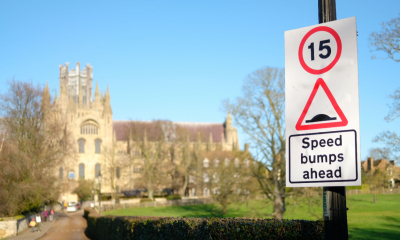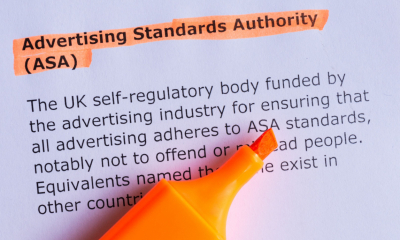HELPING SMALL BUSINESSES SUCCEED
MORE DONUTS:
Discover the key legislation that applies to more than 160 different types of business.
Business administration including the responsibilities of directors, shareholders and the company secretary.
Also in this topic
The legal implications of mergers, takeovers , financing and buying another business.
Also in this topic
Employees and workers are entitled to a wide range of rights and protections. Understand the rules.
Also in this topic
- Recruitment and employment contracts
- Pay and pensions
- Working time: hours, leave, flexible working
- Employment policies
- Sickness and sick pay
- Maternity, paternity and adoption
- Discrimination
- Managing homeworkers, remote workers, lone workers
- Information and consultation
- Discipline and grievance
- Dismissals and redundancies
- Employment tribunals
The law on marketing and selling, consumer protection, imports and exports and selling through third parties.
Also in this topic
Create business contracts, resolve disputes, recover debts and understand court proceedings.
Also in this topic
Leases, licences, business premises ownership and the law on planning permisssion and development.
Also in this topic
Minimise the risk of accidents, injuries and incidents by managing health, safety and environmental concerns.
Also in this topic
Business data protection roles and responsibilities including GDPR, website data and cookies and use of CCTV.
Also in this topic
How to protect your intellectual property and maximise its value. Copyright, trade marks, patents and design right.
Also in this topic
Options for selling, closing or passing on your business and how to achieve a successful exit.
Also in this topic
Personal legal issues from divorce and family law, wills and inheritance to personal injury and traffic offences.
Also in this topic
Law blog
Latest blogs
Warning that UK is unattractive to overseas essential workers
Date: 22 April 2025
By: Immigration Advice Service
Show blogs by topic:
Best practice traffic calming measures for business premises
You have a legal duty to make sure anyone on your premises – be that staff, customers or visitors – are safe. Here’s how traffic calming measures in and around your premises can help.
Date: 30 January 2025 By: Jacob Falcon
Understand how solicitors aid and support bridging loans
Discover the crucial role solicitors play in the bridging loan process from managing the legal aspects, ensuring compliance with regulations, and facilitating quick transactions.
Date: 27 November 2024 By: Stephen Clark, Finbri
Mis-sold car finance: what small business owners need to know
If you need a car for your small business, you run the risk of being mis-sold PCP car finance if you don’t know what to look out for. Here’s what to do if you think you have been mis-sold car finance.
Date: 1 October 2024 By: Jan Penalva
A comprehensive guide to conveyancing
When you buy or sell a property, you will need to complete the conveyancing process. You will need to appoint a conveyancing solicitor. Read this guide to the conveyancing process.
Date: 19 September 2024 By: QualitySolicitors
What are the cybersecurity trends shaping workforce management?
As the world of work evolves and becomes more complicated, cybersecurity is stepping in to make workforce management easier.
Date: 11 September 2024 By: Beyond Tech Media
How do I claim compensation for fingers amputated at work?
Finger amputations are one of the most common workplace accidents. If you're a victim, the injury can be life changing. Here's how to claim compensation.
Date: 28 June 2024 By: RankCastle
What compensation can I expect for medical negligence?
Sometimes, medical professionals or services fall short of what we have come to expect. Here's what you can expect if you're a victim.
Date: 29 May 2024 By: Freeman Harris Solicitors
What small businesses need to know about marketing laws
As a small business, you're not expected to know the detailed ins and outs of marketing law, but you do need to understand the basics. This blog walks you through the essentials.
Date: 22 May 2024 By: Elen Mesropyan, LinkyJuice
Soaring number of inheritance disputes in England and Wales
Increasing numbers of people are contesting their loved ones' wills. We look at the reasons why those left behind feel they have no choice when a loved one dies.
Date: 9 April 2024 By: Ocere
How to navigate compliance in a distributed workforce
Remote and geographically distant workforces are now quite commonplace. While offering a number of business benefits, it can multiply the complications of managing HR, tax and legal compliance.
Date: 20 March 2024 By: Mauve Group
Ten legal issues in software development
This article explores the top ten legal issues you need to consider before starting a new software development project.
Date: 4 January 2024 By: Pulsion.co.uk
The main benefits of due diligence
Commercial transactions can be risky with sizeable amounts of money and reputations on the line. Due diligence can significantly reduce the risks. Here are the main benefits of due diligence.
Date: 21 November 2023 By: SV Online
What UK landlords need to know about boilers
If you're a UK residential landlord, you will have key responsibilities in relation to any boilers fitted in your properties. Read on to find out more.
Date: 11 September 2023 By: Tudor Lodge Digital
Workplace wacker plate and plate compactor safety
Workplace safety is of paramount importance but some workplaces and equipment are more dangerous than others. How to ensure safety when staff are operating wacker plates and compactors.
Date: 17 July 2023 By: Lela Smith
What UK landlords need to know about pest control
Pest infestations are a landlord's and tenant's worst nightmare, but who is responsible for arranging pest control?
Date: 11 July 2023 By: Mike Parkes, GoSimpleTax
Seven legal issues that can harm you and your business
Running a business can be both financially and personally fulfilling. However, there are legal difficulties that could cause you significant problems. Discover seven key areas of risk.
Date: 19 April 2023 By: Maria Blomgren
Forex trading in the UK: regulation and legalities
Forex trading can be risky but the Financial Conduct Authority regulates trade and brokers to minimise the risks for traders. Find out more in this brief guide.
Date: 20 March 2023 By: Jeff Broth
What does the * mean?
If a link has a * this means it is an affiliate link. To find out more, see our FAQs.



















